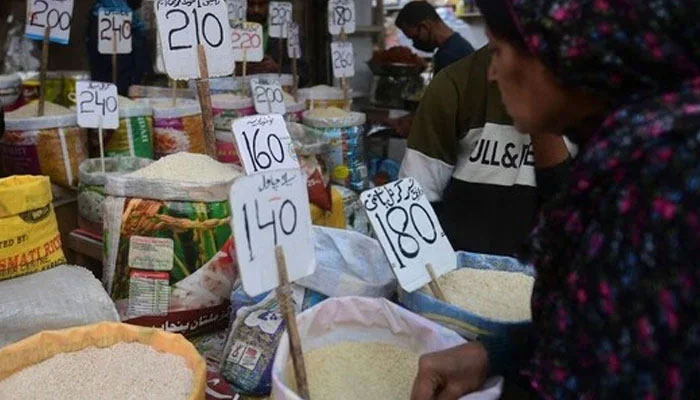Taxing the untaxed
LAHORE: As political turmoil in the country continues, the finance minister can now be seen actively engaging businesses, trying to convince them that the only way out of the current economic mess is to tax the untaxed, including those who pay taxes but hide their actual income.
Revenue generation faces two issues. The first issue is that there are millions of people living lavishly, but paying no taxes at all. The second issue is that many documented sectors reduce their tax burden by underreporting their production or trading activities.
The government has not been able to effectively control both of these issues. The amount of taxes evaded by beverage companies, sugar mills, tobacco companies, and the cement sector is atrocious. The track and trace system has still not been truly implemented. Tax evaders see their evaded taxes as their rightful income and spend it on luxuries, foreign travel, and shopping, besides parking it in real estate.
Many traders have still not come forward under the Tajir Dost scheme. By end July, the registration under the scheme was fewer than 50,000 from among the 22 million traders operating shops with shutters. They are supposed to deposit their taxes on a monthly basis according to the rates fixed by the FBR. These traders have been defying government instructions since the 1980s, and it seems that they will show resistance to the current finance minister, who insists that they get themselves registered.
Most people, regardless of where they are, do not want to pay taxes. But countries have adopted rigid systems that allow people to comply with their tax liability. The availability of artificial intelligence has made the job of tax collection easier and more transparent. The track and trace system is based on this technology, but some businesses here oppose it, partly because they do not want transparency.
The finance minister is facing stiff resistance from the bureaucracy as well. It is because several bureaucrats are also the beneficiaries of the current system. They continue to create hurdles on procedures that bring transparency, denying them easy money generated through rents they receive from businesses. One thing is good that the finance minister is looking exclusively after the economy and is not involved in the political circus.Let us see how much support the finance minister receives from the ruling elite. Lukewarm support could result in even more poverty.
-
 Garrett Morris Raves About His '2 Broke Girls' Co-star Jennifer Coolidge
Garrett Morris Raves About His '2 Broke Girls' Co-star Jennifer Coolidge -
 Winter Olympics 2026: When & Where To Watch The Iconic Ice Dance ?
Winter Olympics 2026: When & Where To Watch The Iconic Ice Dance ? -
 Melissa Joan Hart Reflects On Social Challenges As A Child Actor
Melissa Joan Hart Reflects On Social Challenges As A Child Actor -
 'Gossip Girl' Star Reveals Why She'll Never Return To Acting
'Gossip Girl' Star Reveals Why She'll Never Return To Acting -
 Chicago Child, 8, Dead After 'months Of Abuse, Starvation', Two Arrested
Chicago Child, 8, Dead After 'months Of Abuse, Starvation', Two Arrested -
 Travis Kelce's True Feelings About Taylor Swift's Pal Ryan Reynolds Revealed
Travis Kelce's True Feelings About Taylor Swift's Pal Ryan Reynolds Revealed -
 Michael Keaton Recalls Working With Catherine O'Hara In 'Beetlejuice'
Michael Keaton Recalls Working With Catherine O'Hara In 'Beetlejuice' -
 King Charles, Princess Anne, Prince Edward Still Shield Andrew From Police
King Charles, Princess Anne, Prince Edward Still Shield Andrew From Police -
 Anthropic Targets OpenAI Ads With New Claude Homepage Messaging
Anthropic Targets OpenAI Ads With New Claude Homepage Messaging -
 US Set To Block Chinese Software From Smart And Connected Cars
US Set To Block Chinese Software From Smart And Connected Cars -
 Carmen Electra Says THIS Taught Her Romance
Carmen Electra Says THIS Taught Her Romance -
 Leonardo DiCaprio's Co-star Reflects On His Viral Moment At Golden Globes
Leonardo DiCaprio's Co-star Reflects On His Viral Moment At Golden Globes -
 SpaceX Pivots From Mars Plans To Prioritize 2027 Moon Landing
SpaceX Pivots From Mars Plans To Prioritize 2027 Moon Landing -
 King Charles Still Cares About Meghan Markle
King Charles Still Cares About Meghan Markle -
 J. Cole Brings Back Old-school CD Sales For 'The Fall-Off' Release
J. Cole Brings Back Old-school CD Sales For 'The Fall-Off' Release -
 GTA 6 Built By Hand, Street By Street, Rockstar Confirms Ahead Of Launch
GTA 6 Built By Hand, Street By Street, Rockstar Confirms Ahead Of Launch




